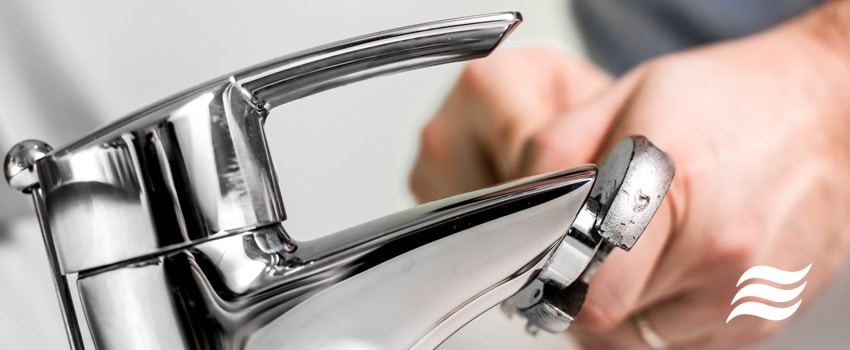
Plumbing Tricks and Insider Tips of the Trade
We've been around since the 70's and through our years in the business, we've seen a thing or two! Our expert team have quite a few secrets of the trade and we would like to pass on a few of these tips to you.
Many plumbers want to horde their knowledge and keep it to themselves – here at Nichols & Phipps, we have a different mindset. We want to help you understand and enjoy your home and it's inner workings.
We've put together a simple guide of plumbing insider tips and tricks that could save you money and provide peace-of-mind on your next repair.
Common Problems with Faucets and Sinks:
One of the most often-used fixtures in any home is the sink and faucets. Here are our three tips to keep yours in top condition.
- Check for leaks regularly. The earlier you realize one of your faucets has a leak, the less it should cost you to repair. Take a good look under the sink where it's attached to the vanity – make sure to inspect the gaskets while you're at it.If you feel any unexpected water, you need to repair it right away. Water damage takes hold quickly – tackle a leak as soon it appears and you'll save money on an extensive repair in the future.
- Clean your faucet aerators of debris every couple of months. Aerators are the small metal filters at your faucets' openings. This is a super easy maintenance trick that could save you money. Simply unscrew the metal housing, clean the aerator of debris and then screw it back on and you are finished.
- Inspect the overflow holes on your sinks and tubs. Another quick job to do every couple of months is to check your sinks and tubs overflow holes. Sometimes unexpected objects can get stuck in them and block water from leaving the bowl. That could spell trouble (and possibly a bill!), so play it safe and check once every couple of months or so.
Water Heater Maintenance:
First things first – do not touch your water heater unless the electricity is completely turned off at the breaker. Water heaters have the potential to be the most dangerous appliance in your home if not treated with the utmost care.
Water heater safety is no joke – if you are not sure, call us immediately and we will provide a routine service, repairs or maintenance for you. It's better to be safe than sorry!
Now that we are all on the same page and understand how careful you must be during water heater maintenance, our first insider tip is: completely drain your water tank every three or four months.
Over time, water sediment builds up in the tank and can reduce your tank's lifespan and working efficiency. By draining the water from the bottom of the tank every 90 – 120 days, you can solve the problem before it can even get started.
Water heater tip number two: while you're looking at the water heater, pop your head down low and check the flame burner to check what color the flame is.
Blue is good, blue with yellow tips is normal too. This shows the correct amount of oxygen is present. If it's completely yellow, or you see a soot buildup, you should call Nichols & Phipps immediately.
A yellow flame or soot build up means there could be a dangerous clog in the flue or carbon is building up.
An annual inspection is essential – it enables a professional to inspect all of the heater's mechanical components, keeping you out of trouble and keeping your family safe.
How To Clean A Dishwasher:
Dishwashers save so many hours slaving over the sink cleaning up – but in the process, they can get pretty dirty and stained. No matter what brand or style of dishwasher you have, it's going to get pretty worn out over time and require a little tender loving care.
If you notice the racks on the inside developing a scaly and unpleasant color from food stains and debris, get yourself a good lime deposit remover (Lime-A-Way, Zep or CLR Lime Dissolver). Add it to the soap holder and run the dishwasher. Don’t forget to select heated drying mode. Be prepared for a sparkling result! Your scaled and discolored racks will look brand new.
Toilet Maintenance:
The most used plumbing item in your house is the toilet. It’s shared with everyone (including guests) and is definitely the most important plumbing feature to keep functioning properly. What would you do without it? Of course, we don’t want to even think about what would happen without it!
The most important toilet maintenance task is to check it regularly for leaks and cracks. This will prevent you from mechanical failures and can even save you some money from fixing damaging leaks. Toilets can easily leak enormous amounts of water and the worst part is that you won’t even know it.
Here’s a simple test to check the tank and the bowl: add a drop of blue food coloring to the tank and look in the bowl. If you notice any blue color, it means water made its way from the tank to the bowl. This is a problem and you have a leak. Try replacing the tank flapper or just give Nichols & Phipps a call and we’ll take care of it.
An important reminder: don’t use any chlorine products in your toilet because rubber and chlorine don’t get along. Sometimes people use bleach to clean the toilet, this is a no-no. Chlorine will dissolve rubber, breaking it down and causing more leaks.
How To Unclog A Drain:
Number one tip for dealing with a clogged drain? Learning how to avoid them before they happen. Prevention is the only ironclad way to repair a clog without calling your local plumber (we know, it's probably too late if you're already reading this, but hey – it'll help in the future).
Our experts’ recommendation is quite simple and cheap to put into action: use a drain strainer everywhere you can.
Most strainers come with new sinks and garbage disposals and are designed to catch all the debris that would otherwise end up in your plumbing system causing problems. The number one cause of clogged drains? Grease and oils.
Don’t use harsh and abrasive cleaners in your sink when it’s backed up or clogged. Drano and Liquid Plumber is not a fix for a clogged drain. These cleaners cause more damage inside your pipes, in the long-haul they end up costing way more than they save.
In some cases, a clog isn’t easy to unclog and may require snaking or jetting. If that is the case, call Nichols & Phipps and let the professionals handle it.
Garbage Disposal Maintenance Tips:
A garbage disposal unit is a way of grinding and disposing of food scraps without directly throwing them in the garbage can.
Most households use their garbage disposal as a whopper chopper and expect it to handle any task and get rid of those scraps with no problem. Unfortunately, that's not what they were made for. The scraps end up like sewage, passed down the street to be disposed of by your local waste management facility.
Our first tip is how to keep the blades sharp. This is actually pretty easy! Take a handful of ice cubes and drop them down, then turn on the disposal.
To banish nasty smells and odors, try pouring a little baking soda down into the unit. Once again never use an abrasive drain cleaner in it and don’t grind heavy items like potato skins, large peels, etc. Baking soda is a great inexpensive, eco-friendly cleaning product.
During everyday use, always run the water, it will help wash down debris and keep the motor from burning up. If the disposal starts stressing from too much debris, it can trip the internal unit breaker. If that’s the case, reach under the unit and hit the reset button or check the electrical panel for tripped breakers. If you can’t locate and resolve the problem call Nichols & Phipps, your local plumbing professional.
And there you have it, 6 of the most common plumbing problems solved with industry insider tips and tricks.
When it’s broken, we fix it. When it’s unfixable, we replace it. When it’s working, we keep it that way… no commissions, no gimmicks, just honest help so you can get back to running your house and living your life. Get in touch with a member of the Nichols & Phipps team today.
Check out our other blogs for some great plumbing advice:
- How to unclog a blocked toilet
- 5 helpful tips for troublesome toilets
- Is it Time to Replace Your Toilet?
- To Flush or NOT to Flush?
- Plumbing Tricks and Insider Tips of the Trade
- What is the Best Type of Water Heater to Use in Northern Virginia?
- Plumbing Noises and What They Mean
- The 6 Fundamentals of Bathroom Remodeling
- Dropped it Down the Drain… Now What?
- Drain Maintenance 101: Causes & Prevention
- The Water Heater Dilemma – Repair or Replace?
